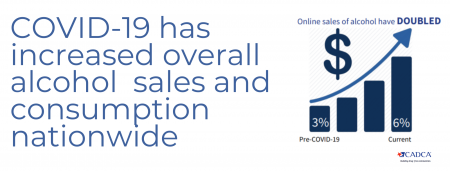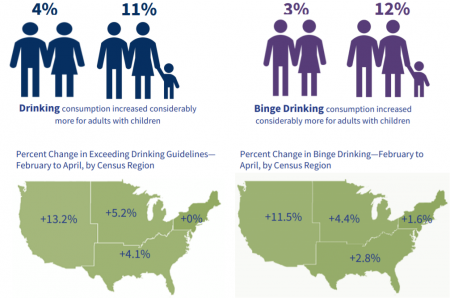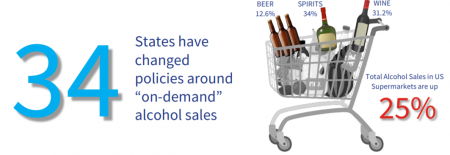What To Do
2020 has been profoundly trying. Many have experienced hardships out of their control ranging from health concerns, job loss, witnessing social injustices, and much more. While for some families the holidays bring positive feelings, there are stressors like time management, financial stress, relationship dynamics, etc. This year, those are compounded with trying to cope with feelings of loneliness, and other negatives because of the global pandemic. It is important to grant yourself and your children permission to have these feelings. Here are some general tips to help anyone navigate this unique time, modified to reduce the spread of COVID-19:
- Acknowledge your feelings. It is normal to feel sadness, grief, and anxiety during this time. Recognize and address whatever feelings or emotions you may be experiencing. Negative feelings can manifest in unhealthy ways if gone unrecognized, which can cause you to unintentionally lash out. We are all doing the best we can. Take a step before you project your internal frustrations. Then find conducive ways to externalize those negative feelings like writing them down, working out, taking time to yourself, or talking with someone in a healthy manner.
- Reach out. If you feel lonely or isolated, call a loved one or see if there are virtual events that can offer support. While it may feel lonely, you are not alone, everyone is experiencing these emotions to some degree.
- Be realistic. This is not anything we have ever experienced, so embrace new traditions. Try to be mindful of your situation, recognize that things will not be exactly how you expect or have been in the past. Try to make the best of whatever situation you are in.
- Celebrate. Take time to appreciate and reflect on positive moments from this year that bring joy and happiness no matter how big or small. Reframe your thoughts to know this may be challenging but it is not permanent.
- Do not abandon healthy habits. Over the past several months supermarkets have experienced a 25% increase in alcohol sales throughout the U.S.
Refrain from unhealthy coping mechanisms and do not forget about the boundaries you have set in your home around safe drinking practices. The 21+ community should try to drink within safe limits. Have a conversation about the rules set and maintained in households to always prohibit underage drinking.
- Take a breather. Make some time for yourself. Find an activity you enjoy. Try a new recipe, read a book, or watch your favorite movie.
- Practice safe COVID guidelines. Some may be experiencing feelings of guilt because they cannot see family members this time of year, but in the long run, it is necessary to keep everyone healthy. However, try a video call or pick up the phone. When you feel discouraged or receive backlash because you are trying to social distance, remember the main goal of all of this. If you must attend small gatherings make sure to practice COIVD-19 safety measures such as mask-wearing, social distancing, and handwashing. The use of alcohol or drugs may alter judgment and make it more difficult to practice COVID-19 guidelines.
- Seek professional help if you need it. Despite your best efforts, negative feelings can persist. If they do, talk to a professional. Remember it is okay to not be okay.
How to Help Your Kids
While the above tips work for children as well, The Vernon ROCKS Coalition wanted to provide some additional information to specifically help kids get through this time.
Much like everyone else, kids have had their lives completely changed. They are growing up navigating the same stressors of adolescence that every other generation had, such as learning to manage emotions and the stresses of school and peer relationships. As we experienced these things, they were at the forefront of our concerns and now teens have to navigate all these intense things while simultaneously worrying about COVID-19 and the factors that come along with it.
- Be understanding. Much like you are trying to navigate this new time in our lives, so are the kids. Talk to one another honestly about how each other feels. Meet tough moments with empathy. Communication is key and may lead you to discover that they are dealing with so much more than what meets the eye.
- Speak honestly. This is a scary time, and a lot is unknown. Your kids have access to information via online and the news, but sometimes it can be difficult to comprehend, misconstrued, or just factually inaccurate. If your kid comes to you with concerns, help them navigate it by speaking honestly with them, and present credible facts. The CDC has a fact sheet you can utilize and answer the questions your child poses.
- Encourage togetherness. While they should not go see their extended family or friends, it does not mean they cannot spend time with you, and it might decrease both your feelings of loneliness. Play a game, take a walk, or bake something. Find ways to help them connect with people, like encouraging them to hang out virtually with their friends and family
- Discourage excess screen time. With virtual learning kids are now spending substantial time on their computers, try to promote time and activities away from the screen. Playing video games or going on social media is fine and can be a good outlet to relax for a while, but it should not be what they do all winter break. Psychology Today recommends to, “start with an hour a day of entertainment-based screen time, and, most importantly, embrace it as the healthy part of your child’s play diet that it is! Remember, though, this hour does not include time spent on a screen listening to music, reading, or doing productive, creative, and school-based activities.”
- Honor your holiday traditions. As humans, we look for normalcy, try to create that for your children by maintaining holiday traditions, but adapt them as necessary for the current conditions.
- Be a role model. Teens are heavily influenced by how they see adults acting. When teens see their caregivers responding to stress calmly and confidently, they, in turn, are creating a healthier and less frightening environment for their teens. Practice self-care by taking breaks, get plenty of sleep, exercising, and eating well during this time. Often the holidays mean an increase in alcohol consumption, set the right example by drinking responsibly and talking openly about the rules and expectations regarding substances and alcohol use in your home.
Help Prevent The Spread Of COVID-19
The CDC advises that we
- Wash your hands with soap and water for 20 seconds.
- Avoid touching your face, eyes, mouth, and nose.
- Avoid contact with people vulnerable to the virus.
- Cough into your elbow, not your hand!
- Disinfect surfaces you regularly use.
- If you feel unwell, stay at home and call your healthcare provider.
- Only share information from trusted sources.
FOR MORE INFORMATION ON SOCIAL DISTANCING CLICK HERE
FOR MORE INFORMATION ON COVID-19 CLICK HERE
Additional Resources
In response to Coronavirus, we have been instructed to limit our face-to-face interactions with others. For many that includes the attendance to vital support groups. Luckily, there are still ways to participate in meetings and groups remotely. Many of the meetings are available in English and Spanish and can be searched by the type of meeting. The websites below offer resources to virtually access.
SAMHSA Disaster Distress Helpline
CALL TOLL-FREE 1-800-985-5990
TEXT “TalkWithUs” or “Hablanos” to 66746
SAMHSA’s Disaster Distress Helpline provides 24/7, 365-day-a-year crisis counseling and support to people experiencing emotional distress related to natural or human-caused disasters.
SAMHSA National Helpline (English and Spanish) 1-800-622-HELP
SAMHSA’s National Helpline is a free, confidential, 24/7, 365-day-a-year treatment referral and information service (in English and Spanish) for individuals and families facing mental and/or substance use disorders.





